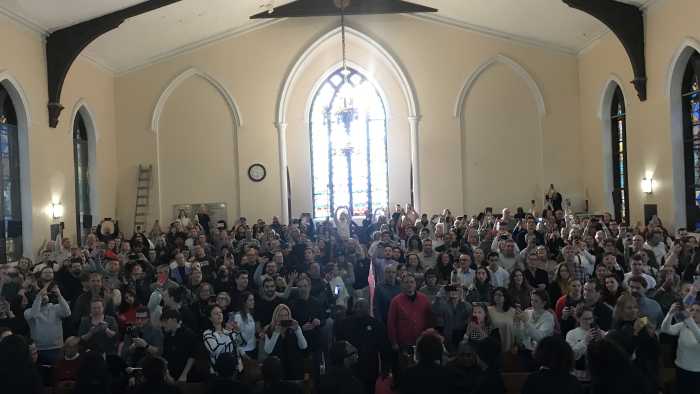Last summer, I took a 20-block cab ride to Grand Central Station during rush hour and ended up getting yelled at by a cop for delaying traffic.
It was unavoidable. The Senegalese driver and I got on so well that he simply had to step out of the taxi at 42nd and Park to hug me before we parted — and I him — and to exchange phone numbers so that we could invite each other’s families to dinner at our homes, his in New Jersey and mine in Westchester. There in the narrow confines of Pershing Square, we made a solemn pledge to follow up, amid a justified cacophony of car honks and shouts from nearby vehicles.
Dinner at Matar’s apartment — that was his name — would be served on the floor from a single shared bowl, he explained; I was going to introduce my new friend’s family to my mother-in-law’s braciole.
Never happened. My wife and two of three daughters told me I was nuts, and his wife presumably said the same, because a couple of text messages back and forth was as far as it went. A briefest friendship followed by re-entry into a sea of strange faces.
For days afterward, I became obsessed with a business idea, an Airbnb-type member service for dinners in other people’s homes. The idea was to move members out of their comfort zones — Park Avenue WASPS belching borscht with Brighton Beach Russians; Hasidim hosting hipsters in South Williamsburg; Koreans from Flushing spinning spaghetti with Tottenville Italians.
The idea went as far as dinner did with Matar. But it’s lingered in my mind since as a noble, economically viable and consummately American idea.
So when I saw headlines this week about an unusual event in the Atlanta suburbs called “Come Meet a Black Person,” I smiled and grimaced. Someone did it! That someone is Cheryle Moses, a black filmmaker struck by a 2013 study showing that about 75 percent of white Americans don’t have non-white friends and about 65 percent of black Americans don’t have white friends.
Now, there’s nothing wrong with befriending people most like ourselves, but the continuing existence of a culturally semi-separate “Black America” doesn’t fit with where most people of good will want to see this nation go.
Liberals and conservatives classically disagree about the causes of a prolonged and unnatural black underclass, but both sides should acknowledge that it gnaws at the very promise, and premise, of the American experiment. If equality of opportunity is to work as a national concept, it has to work for everybody.
I’ve made a new friend this week, I hope. Melanie Lee, a CUNY tutor from East Elmhurst, kindly copied me on a letter-to-the-editor that she submitted in response to a recent column I penned about the Democratic Party. Melanie, who is African-American, took offense to my words, and we have since struck up a cordial email exchange. I hope she’ll consider this column an invitation to lunch. It would be a privilege to trade life stories and perspectives with her.
The “Come Meet a Black Person” event isn’t going to unite America, but the idea behind it could point us in the right direction, one conversation at a time. What do you say, Melanie?
William F. B. O’Reilly is a consultant to Republicans.


































